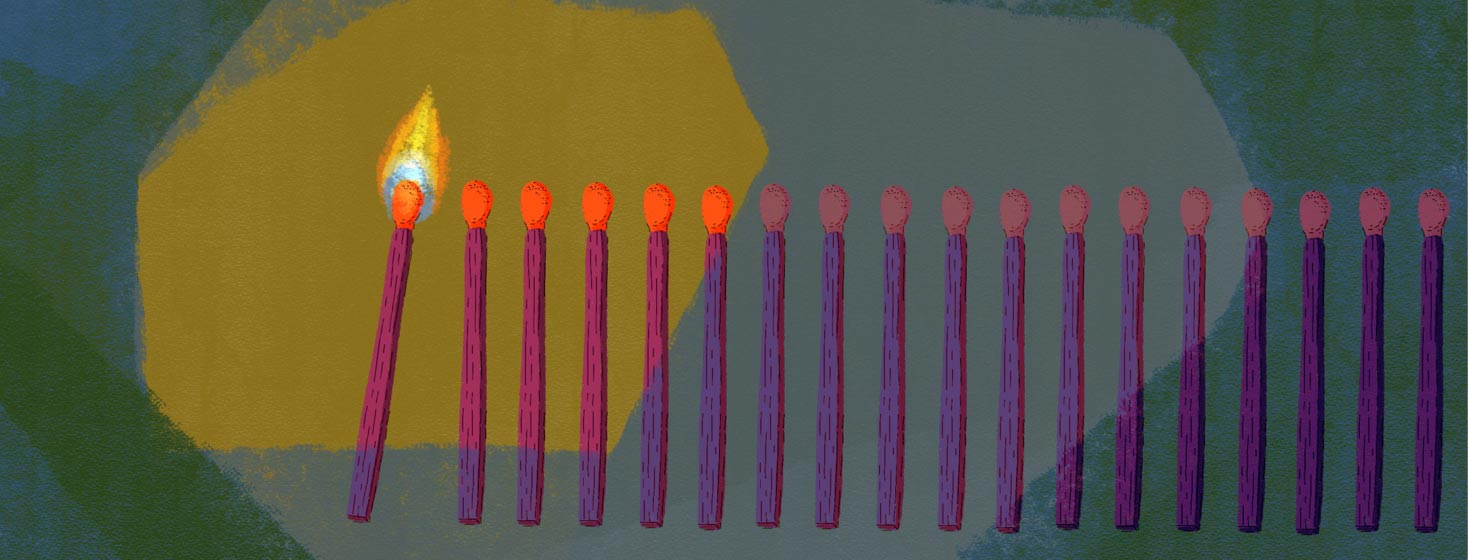Waiting For the Other Shoe to Drop
One of my favorite expressions used to talk about bipolar is "waiting for the other shoe to drop."
A little Googling informed me that this expression originated in turn of the 20th century New York tenement apartments. Apparently, people would hear their upstairs neighbor take off one shoe and drop it to the floor. It was only a matter of moments before they heard the other shoe hit the floor as well – thus, the expression of waiting for something to happen that you know with relative certainty is coming.
This or That
Do you experience fear or anxiety about the possibility of a relapse?
What does this have to do with bipolar disorder?
Bipolar disorder is, at its core, cyclical and episodic. That means there is good news and less good news.
The good news is that when we are struggling or having symptoms, there is likely relief somewhere on the horizon if we get help. The less good news is that when we're doing well, there's a decent chance we're going to have another episode at some point.
In some ways, living with bipolar means we are constantly waiting for the other shoe to drop.
Fear of bipolar disorder relapse
You might be thinking, "Wow, Dr. V, that's terribly discouraging, why are you positioning things like this?" Friend, I'm not here to sugarcoat circumstances for you. I'm here to share how I cope with the very real difficulties that come with living with this condition.
And I assure you, we can live very well even while waiting for the proverbial other shoe to drop.
What I do while waiting
I don't fear the future. Fear is a complex and powerful force. While fear (and its cousin anxiety) can be strong protective factors at certain times, alerting us to dangerous situations, they can also overstep their bounds and be counterproductive if left unchecked.
Avoiding fear and anxiety about a relapse
I find that if I remain in a state of fear or anxiety about the possibility of an upcoming relapse, I am actually priming my brain for that relapse to happen. Fear and anxiety release cascades of stress chemicals in your body that would help you fight off a true threat - like a tiger.1
But if anyone remains in a chronic state of fear or anxiety (despite there being no tiger) those stress hormones take a real toll on wellbeing and can lower the threshold at which triggers cause a full-blown mood episode.
Less fear, more fun
Put plainly, I make hay while the sun shines. If I'm doing well and not experiencing symptoms or impairment, I try to stay mindfully, intentionally engaged with the world around me.
Put simply, I enjoy my life! I make deliberate plans to do things I love, spend time with those I care about, and rejuvenate through self-care.
Staying mindful
Staying mindful isn't as complicated or zen as one may think. It's truly just the process of paying full attention to what you're doing in each moment with acceptance and without judgment.
I spend time with friends and listen intently to them, quietly soak up beauty on a nature walk, or relish the feel of a fuzzy blanket as I climb into bed. In all of these, attention keeps me grounded in the moment and distracted from the possibility of that other shoe.
Keeping up my bipolar wellness routine
If you're reading this, chances are you've been riding the bipolar dragon for some time and have at least a decent sense of what you need to do to stay well. For me, this includes a regular sleep schedule, taking prescribed medications, physical activity, social connection, and a schedule that allows for adequate rest and recuperation.
Keeping these factors in place while I'm doing not only helps safeguard against a mood relapse but also gives me the recourse to pivot and reorient should I begin to experience symptoms.
We've got this
So maybe it's not just about waiting for the other shoe to drop, but simply keeping an ear out for any soft thuds we hear from above. If we're mindfully engaged and meaningfully absorbed in what's going on in our own worlds, we'll be set to bounce back - even if a crack appears in your ceiling.
